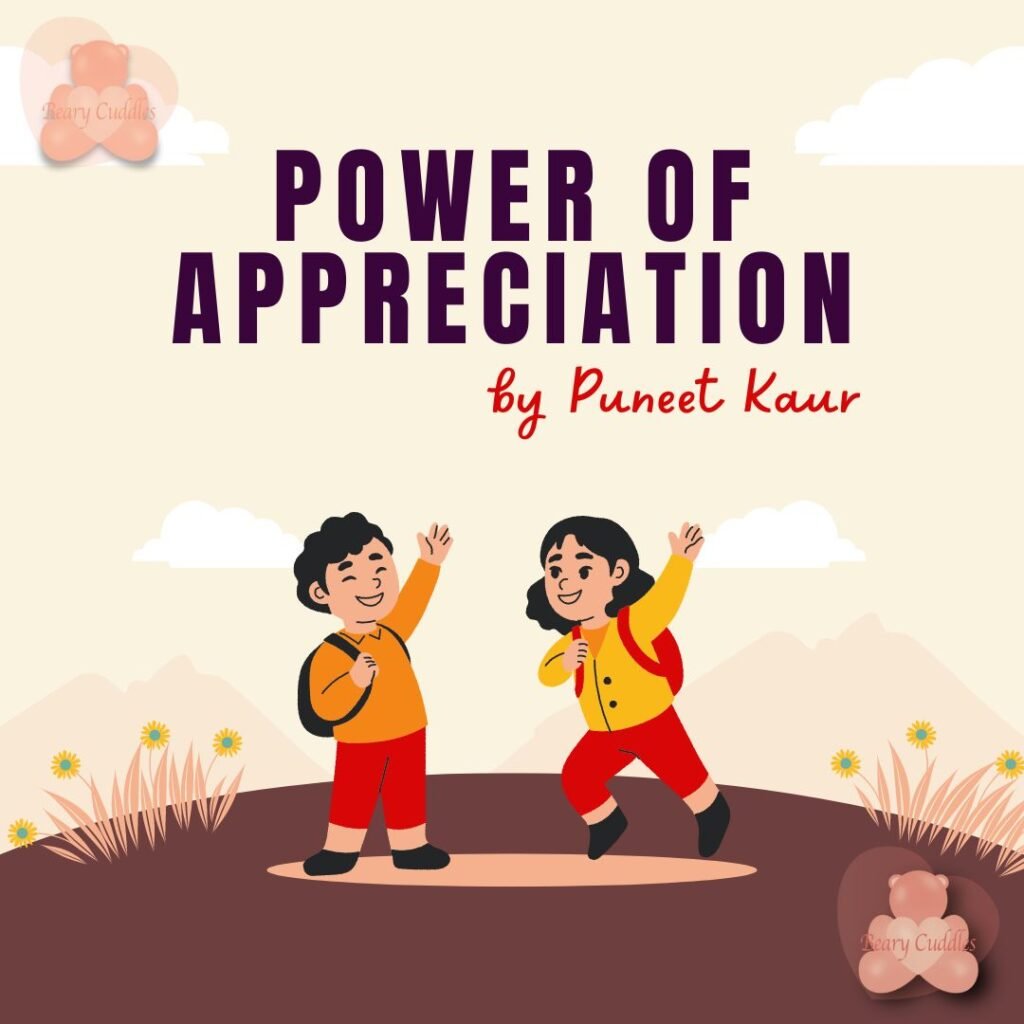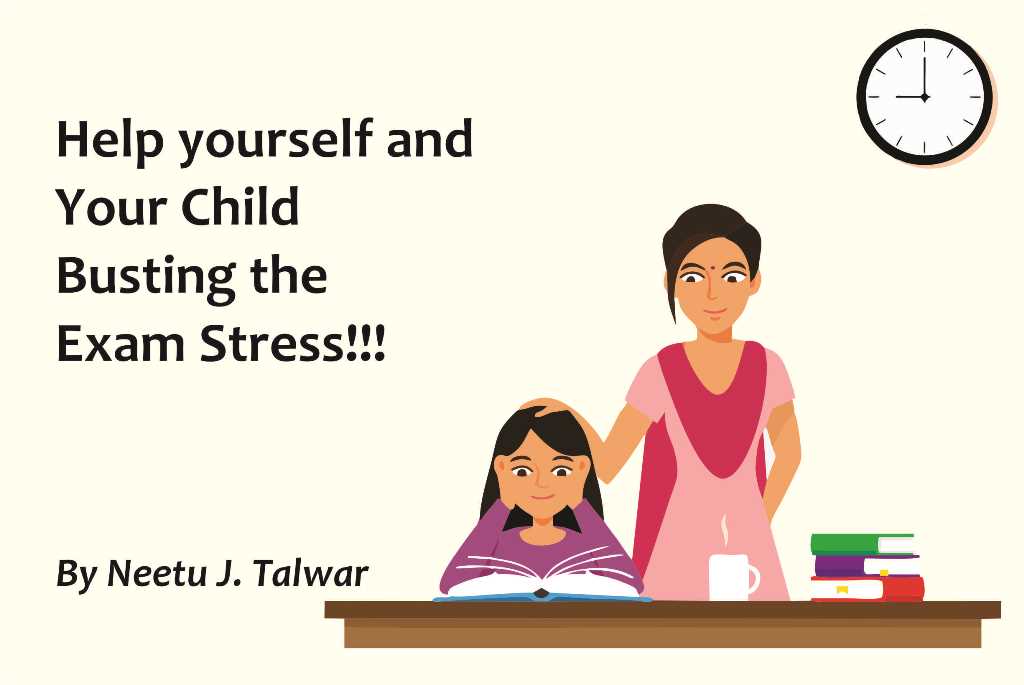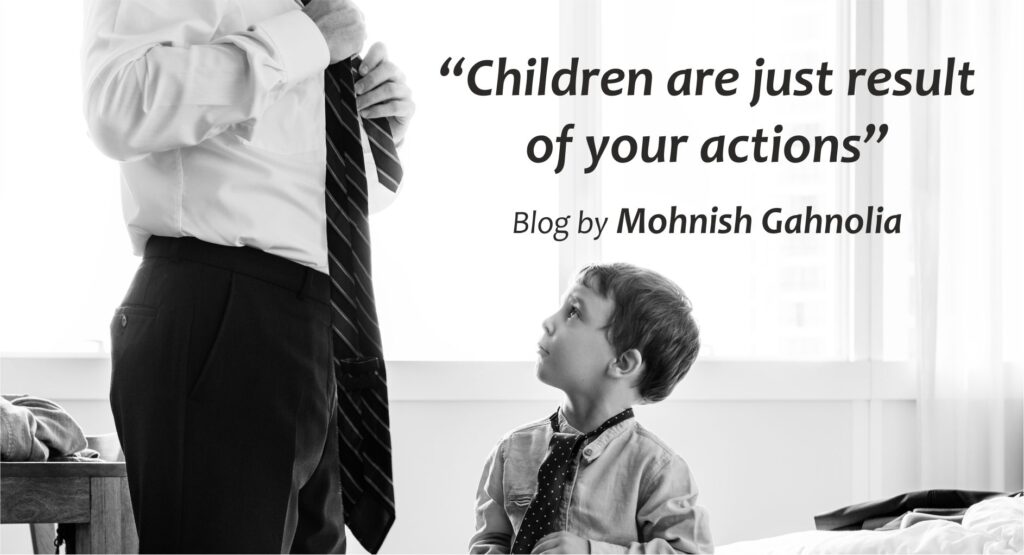When Should Kids Get Their First Phone? A Parenting Coach and Mom of Two Weighs In
As a parenting coach and a mom of two, I’m no stranger to the heated debate about when kids should get their first phone. It’s a question I hear often: “What’s the right age to hand my child a phone? Should I cave to the pressure because every other kid seems to have one?” These are valid concerns, especially in a world where smartphones have become almost synonymous with social connection, education, and even safety.
But here’s the thing: While technology has undeniable benefits, giving a child a phone isn’t just about the “when” – it’s also about the “why” and the “how.”
My Perspective: Delayed Gratification Worked for Us
As a mom, I made a deliberate choice to delay giving my son a phone until he reached grade 11. By that time, he had a better sense of responsibility, understood the value of boundaries, and had more self-regulation to handle the distractions that come with smartphones. My younger child, now 12, still doesn’t have a phone, despite the growing peer pressure.
Has it been easy? No. There’s a constant tug-of-war between wanting to keep up with the norm and holding firm to our family values. Most of their friends had phones long before grade 6, making them feel “left out” at times. But I’ve learned that what works for one family might not work for another – and that’s okay.
The Peer Pressure Factor
As parents, we face the added challenge of peer pressure – ours and theirs. The argument that “every other kid has one” can feel overwhelming. You don’t want your child to feel isolated or excluded, but you also don’t want to give in to societal trends that might not align with your family’s values.
Here’s the truth: Kids are incredibly adaptable. They might feel the pinch of not having a phone, but they will also learn how to navigate social settings without constant digital interaction. That independence and resilience, in my experience, is worth the short-term discomfort.
What’s the Right Age for a Phone?
There isn’t a universal answer, but here are some factors to consider:
1. Maturity Level: Is your child able to follow rules and manage time responsibly? A phone is a tool that requires discipline to use effectively, especially with social media and gaming.
2. Purpose: Why does your child need a phone? If it’s primarily for safety or communication, a basic phone with calling and texting capabilities might be enough.
3. School Policies: Many schools have strict guidelines around phone usage. Consider how these rules might align with your child’s needs.
4. Family Dynamics: Every family has unique values and routines. Decide what works best for your household instead of comparing with others.
What Type of Phone Should They Start With?
If you’ve decided it’s time for your child to have a phone, consider starting small:
• Basic Phones: Devices without internet access or apps are great for younger kids. They allow calls and texts but eliminate distractions like social media.
• Parental Controls: If you opt for a smartphone, ensure it has robust parental controls to limit screen time, restrict downloads, and monitor usage.
• Set Clear Boundaries: Discuss expectations around phone use, including when and where it’s appropriate to use it.
Can We Really Do Without Phones?
It might feel impossible to navigate modern parenting without giving your child a phone, but it’s not. Phones can be helpful, but they aren’t the only way to stay connected or ensure your child’s safety. Family rules, open communication, and alternatives like family-shared tablets or old-school landlines can bridge the gap.
Final Thoughts
The decision to give your child a phone is deeply personal and varies from family to family. My approach has been to delay it as much as possible, not because I’m anti-technology, but because I believe in teaching my kids to thrive without constantly being tethered to a device.
As parents, our job is to equip our kids with the skills to navigate life – not just the digital world. Whether you decide to give your child a phone at 10, 12, or 16, the most important thing is to guide them through it with clear expectations, boundaries, and conversations about responsibility.
After all, the goal isn’t just to raise tech-savvy kids but to raise thoughtful, self-aware, and resilient individuals.

Nurturing Hearts: The Role of Parents and Grandparents in Developing Empathy in Children

EMPATHY – Children, Parents and Grandparents
Princy is a small, cute girl who is always on the go. She used to mingle with others easily. However, she gets emotional over small things. She accidentally broke her friend’s new lunch box while running around the classroom desk. She got scared and started crying. After reaching home, she explained this to Grandma. Princy’s mother became enraged and began scolding her for her careless attitude.
“You’re shouting at a small girl, so why are you shouting at her?” Grandma interjected.
Is this an example of a lack of empathy? Do you believe Grandma’s intervention will have any effect on empathy?
In this case, the need for Princy must be examined.
Mothers’ motives are to be understood.
In addition, the grandmother’s previous experience with similar cases must be considered.
As her grandmother said, Princy, being a small child, needs support and guidance. The mother’s motivation is to correct her child and to have the child be “good” in her opinion (what constitutes “good” is a difficult fact…). The grandma, who is experienced, clearly understood the needs of the child; rather, she was aware of how to handle the child at that point in time.
Experience definitely matters, but in general, especially in the case of parenting, unless we have a guideline, have to wait for occasions to learn and gain experience. For the mother, who is less experienced in comparison with the grandmother, she might not be in a position to think of the needs of the child at that time.
Most of the time, we understand the literal meaning, but we are not always able to implement it whenever we need it. The word “empathy” is used frequently, but very few understand the other person’s emotional condition and motive.
While analyzing an incident, we are only able to understand the action we took and what it was supposed to be. Empathy is more than a feeling of sympathy for another person. So, when we are trying to put ourselves in another person’s place, we are about to understand his feelings and experiences. This is not that simple, but also that difficult.
In parenting, the empathy part can make marvelous changes in the relationship. A secure attachment is about the security, care, and protection of our child. We are less likely to become angry or aggressive if we can cognitively understand his/her point of view. Also, we may not respond poorly to the child. A well-developed emotional empathy makes us well connected with the child’s inner emotional world. A secure parent-grandparent-child attachment will definitely help improve the emotional and psychological health of children, which assures their care and protection.
Role of parents in developing empathy
Parenting is a complex and rewarding job, and having empathy is an important part of being a successful parent. Parents need to be able to understand and share the feelings of their children. This allows parents to relate to their children’s experiences, which helps foster a strong connection between them and their children. Empathy is also essential for providing the love and support that children need to develop into confident and secure adults. Parents who demonstrate empathy are better able to recognize their children’s feelings and provide appropriate guidance and discipline. In addition, children with parents who are empathetic are more likely to develop healthy relationships with their peers and adults. Empathy is one of the most important skills for parents to have in order to ensure their children feel loved and supported.
Role of grandparents in developing empathy
Grandparents play a crucial role in developing empathy in their grandchildren. They provide a unique source of comfort and unconditional love that can help children understand and appreciate the feelings of others. Grandparents can also offer wisdom and insight on social issues, allowing children to gain a better understanding of how their actions can affect those around them. Additionally, grandparents can help children practice the art of active listening and problem-solving skills, which are essential for developing empathy.
Grandparents can also provide grandchildren with opportunities to interact with people of different ages, backgrounds, and beliefs, further enriching their understanding of the world. Ultimately, grandparents can be a lifeline of support and compassion, which can help foster empathy in their grandchildren.
How to develop empathy in Children
To develop empathy in children, consider reading stories that emphasize understanding and acceptance of different perspectives.
Encourage your children to practice perspective-taking by asking them to imagine how someone else might be feeling or how they might view a situation differently.
Spend quality one-on-one time with each of your children, and ensure you ask them open-ended questions.
Model empathy by actively listening to your children and expressing understanding when they share their feelings.
Help your children practice self-awareness by encouraging them to reflect on their own thoughts and feelings.
Provide opportunities for your children to volunteer or serve in their community.
Teach them how to recognize and manage their emotions.
Discuss how to handle disagreements in a respectful and constructive way.
Make sure to show appreciation for your children’s efforts and successes.
Lastly, show empathy to others in your daily life, as parents can become an example for their children.
Few Challenges in Developing Empathy
Developing empathy within a family can present several challenges. Some of the areas I have personally experienced include mood changes in both children and parents, the dynamics of a nuclear family, and the demands of a busy life.
The behavior of parents towards their children may not always align with the children’s preferences, especially in situations where parents make decisions, they believe are beneficial for their children.
Children often encounter difficulties in situations where others do not show empathy towards them.
Children As Mirror : The Reflections We Can’t Ignore
Have you ever looked at your child and wondered, Where did they learn that from? The way they speak, handle frustration, or even express joy—so much of it feels eerily familiar, like watching a mini version of yourself. It’s because, in many ways, they are reflections of us. A child is like a mirror, absorbing everything we say and do and reflecting it back to the world in their own unique way.
It’s easy to forget just how deeply connected our children are to us. In the rush of daily life—school runs, homework, chores—it can be hard to stop and recognize the impact our behaviour has on them. But the truth is, our children are constantly learning from us, not just from what we tell them, but from how we live.
Think back to a time when you felt overwhelmed and found yourself snapping at your child for something small. Maybe you were running late, stressed, or simply exhausted. Later, you see your child mimic the same frustration—perhaps with a sibling or a toy. In that moment, it’s easy to feel guilty, like you’ve passed on a negative trait. But rather than being hard on yourself, what if you saw it as a moment of reflection, a gentle reminder that we’re all human and learning together!
Children don’t just reflect our flaws, though. They also mirror our love, our patience, and our kindness. Have you ever watched your child comfort a friend who’s upset or share something without being asked? That’s you shining through. Every act of kindness they show is a testament to the love and guidance you provide, even on the days you feel like you’re falling short.
It’s important to remember that parenting is not about being perfect. It’s about being present and aware. Our children will have their moments of frustration, just as we do. But instead of seeing those moments as failures, we can use them as opportunities to grow—both as parents and as individuals. When your child reflects back your impatience, it’s a chance to take a breath and ask yourself, How can I do better next time? And when they reflect back your joy, it’s a reminder that the love you give is being deeply absorbed.
Parenting is a journey of constant self-discovery. Our children hold up a mirror not just to our actions, but to our inner selves. They show us the parts of ourselves that need healing and the parts that are already strong. This can feel overwhelming at times, especially when we see our own struggles mirrored in their behaviour. But it’s also incredibly powerful because it gives us the chance to model growth, resilience, and self-compassion.
When you’re feeling overwhelmed, remember that every moment with your child is an opportunity to shape not only their future but also your own. Children are resilient and forgiving; they don’t need us to be perfect, they need us to be real. They need to see that it’s okay to make mistakes, to apologize, and to keep trying. When we show them that, they learn to do the same.
So, the next time your child reflects something back to you, whether it’s their laughter or their tears, take a moment to see the connection. Understand that in raising them, we are also raising ourselves. We’re growing, learning, and becoming better versions of who we are. And through it all, we’re building a bond that is rooted not in perfection, but in love, understanding, and endless possibilities.
Parenting is hard, but it’s also the most rewarding journey we’ll ever embark on. Our children, like mirrors, show us not just where we’ve been, but where we have the potential to go. Let’s embrace that reflection, with all its beauty and imperfections, and continue growing together. Let’s learn and grow together.
– Perfectly Placed Pursuits
Dr. Salma Rashiyani.
The Importance of Consensus Among Parents: Building a Stronger Foundation for Our Children.
The Importance of Consensus Among Parents: Building a Stronger Foundation for Our Children
In today’s fast-paced and ever-evolving world, parenting can often feel like navigating a complex maze. With various influences from technology, education, and societal norms, parents face unique challenges that require careful consideration and collaboration. One of the most crucial aspects of effective parenting is achieving consensus among parents—whether they are in a single household or co-parenting across different homes. This agreement not only strengthens family dynamics but also sets a stable foundation for children to thrive.
- Creating a Unified Front:
When parents are on the same page regarding values, rules, and expectations, it fosters a sense of security for children. A unified approach helps prevent confusion and anxiety. For instance, if one parent allows screen time while the other enforces strict limits, it creates an environment of inconsistency. Children thrive when they know what to expect, and a consensus helps establish clear boundaries that contribute to their emotional well-being.
- Modelling Healthy Relationships:
Consensus among parents exemplifies the importance of cooperation and compromise—key components of any healthy relationship. When children observe their parents working together, they learn vital social skills, such as conflict resolution, empathy, and teamwork. These lessons become foundational for their future relationships, whether with peers, colleagues, or partners.
- Enhancing Communication Skills:
Establishing consensus requires open and honest communication. When parents engage in discussions about their parenting approaches, they model effective communication for their children. This process not only strengthens the parents’ relationship but also teaches children how to express their thoughts and feelings respectfully and constructively. In an age where digital communication dominates, fostering face-to-face discussions can significantly enhance emotional intelligence.
- Supporting Emotional Development:
Children are highly perceptive and often pick up on tension between parents, which can lead to feelings of anxiety or insecurity. A cohesive parenting strategy minimizes conflict and fosters a nurturing environment. When parents agree on how to handle emotional situations—like addressing bullying or academic pressures—children feel more supported. They learn to navigate their emotions, knowing they have a reliable support system.
- Encouraging Consistency in Discipline:
Discipline is an essential aspect of parenting that requires consistency to be effective. When parents have a shared understanding of disciplinary methods, children are less likely to test boundaries. This uniformity helps children understand the consequences of their actions, encouraging responsible behavior
. Furthermore, consistent discipline reinforces the idea that actions have predictable outcomes, which is a crucial lesson in personal responsibility.
Consensus among parents helps create a cohesive family identity. When both parents actively participate in decision-making, children feel valued and understood. This collaborative spirit nurtures a sense of belonging, which is vital for self-esteem and confidence. Whether through shared family traditions or collective problem-solving, children grow up knowing they are part of a supportive unit.
Parenting is a journey filled with challenges and learning opportunities. When parents come together to share insights, experiences, and resources, they not only grow individually but also enrich their parenting approach. This commitment to lifelong learning sets an excellent example for children, teaching them the importance of adaptability and growth.
- Conclusion
Achieving consensus among parents is not always easy, but its importance cannot be overstated. A unified approach enhances communication, emotional development, and discipline while modelling healthy relationships for children. As parents, investing time and effort into finding common ground creates a nurturing environment where children can flourish. By prioritizing consensus, we empower our children with the tools they need to navigate life’s challenges and emerge as confident, well-adjusted individuals.
In this ever-changing world, let’s strive to work together, fostering a loving and supportive atmosphere that echoes through generations. 
Significant Leaps to Appreciation
Over the years, growing up as a child, I carried a belief that you are appreciated and praised in life only when you are successful. Award is given only to winners. Tough competitions and struggles divided my mindset into only two categories- winners and looser. Praise and acknowledgement is served only to the best. The rest land nowhere. Either there is disappointment and loss or there is an applause and award. This ended up to create my fighter ideology.
Unless I performed well, I was never satisfied. Love was unconditionally offered but praise had to be earned not just with efforts and hard work but getting brilliant an outstanding results. Appreciation was conditional. If I do well, I have reward. And if I do bad, I get nothing. The same traditional concept raised me into a college achiever.
My parents endless efforts and sacrifices added to my guilt if I under achieved. But my journey and struggles somewhere remained unnoticed. I was never criticized, punished or ignored. But had to level up to a commendable benchmark which when not achieved restricted my appreciation or celebration. High hopes set on me to walk the achievers platform only brought disappointments and low self-esteem. My college course and professors somewhere brought back the spirit of determination and achievement as the course I studied offered self-exploration and I realized that I had a long way to go. For the first time, I got remarks in my files such as:-“painstaking efforts, praiseworthy thoughts, written with efforts and dedication” instead of just good, very good, excellent or just a signature. For the first time I felt somebody appreciated my hard work and efforts. It greatly motivated me back to become progressive and successful in pursuing my career.
To meet social expectations and fulfill personal needs of recognition, like many kids I put myself through stifle pressure and tireless efforts.
Usually, in the long run children who handle such situations end up killing their spark by giving up on their dreams or exhaust themselves to prove their capacity. Either of which is unhealthy. I chose to over work and devote my energies solely into this race.
Grades, marks were of great value and to get into the best of institutions, one had to crack competitive exam. But somewhere I found relief amidst all this pressure by focusing on doing what I enjoyed. But my basic zest of achievement that was ingrained so deeply returned back when I got a child of my own. I never negated or criticized her but internally had expectations from her too. Soon to realize that I do not want her to go through the same thing. I was open to the view due to my exposure and learnings that I have to be her support. She will take her own time to reach her full potential and I will not pressurize her for those outstanding results. I clapped at her every step when she learnt to walk, talk, play and do her tasks but slowly with time when academic pressure came, I forgot to appreciate that her improper circles also need appreciation.
The fact that the little things that are not perfect also deserve appreciation. Only then they grow better. It’s a basic human need.
In life also, we must have gratitude for every little thing. Power of appreciation gives encouragement, positivity and new hope in times of pain, frustration and anger and allows the person to constantly stay motivated when one has a lost sense of direction.
“It is like a bridge to victory which we fail to acknowledge” or “a rechargeable battery that repowers you” when everything is grey and cloudy.
It shifts our focus to see the good instead of just focusing upon the missing puzzle pieces thereby working more effectively in developing positive behavior and habits. A very positive environment is created and the child cannot get a better space than this to grow. We tend to overlook its advantages in the long run under the belief that it may spoil the child but it truly helps to shape the personality of the child to become progressive, more positive, resilient, more unstoppable and open to new experiences in life. So as rightly said “there are things to say besides just good job” and “praise can transform a prison into a temple”.
-By Puneet Kaur
Power of appreciation
 The Power of Appreciation in Child Development:
The Power of Appreciation in Child Development:
Six Principles to Nurture Growth.
Appreciation is a cornerstone of healthy child development. It shapes a child’s self-esteem, motivation, and social skills. When children feel valued and recognized, they are more likely to thrive in their learning and interactions. Here are six essential principles of appreciation that can enhance your approach to nurturing a child’s growth.
- Be Specific When Praising
Vague praise like “Good job!” often falls flat. Instead, be specific about what you’re acknowledging. For instance, saying, “I loved how you shared your toys with your friend today!” not only highlights the positive behaviour but also reinforces the value of sharing. Specific praise helps children understand what they did well, encouraging them to repeat those behaviours.
- Praise the Efforts/Progress, Not Only Results
Focusing solely on outcomes can create pressure and fear of failure. Instead, celebrate the effort and progress a child makes, regardless of the final result. For example, saying, “I’m so proud of how hard you worked on that puzzle!” emphasizes perseverance and resilience. This approach fosters a growth mindset, teaching children that effort is just as important as success.
- Praise and Correction Should Be at Separate Times
Mixing praise with correction can confuse children and undermine the effectiveness of both. When you need to offer constructive feedback, do so separately from praise. For example, acknowledge their hard work first, then address areas for improvement later. This strategy allows children to fully absorb your appreciation without feeling overwhelmed by criticism.
- Praise Must Be Genuine and Sincere
Children can sense insincerity, which can lead to distrust and diminish their motivation. Make sure your praise is heartfelt and authentic. If you struggle to find something to praise, take a moment to observe your child’s efforts closely. Genuine appreciation fosters a strong emotional connection and encourages children to take pride in their achievements.
- Praise in Public – Correct in Private
Public acknowledgment can boost a child’s confidence and reinforce positive behaviour. When a child does something commendable, celebrate it openly—like praising their performance in front of family or friends. However, keep corrections private to maintain their dignity and self-esteem. This balance helps children feel valued while also supporting their growth.
- Accentuate the Positive
In every situation, there are opportunities to focus on the positives. By highlighting what children do well, you create an environment where they feel safe to explore and take risks. Instead of saying, “You missed a few questions on that test,” you could say, “You did really well on the questions you understood!” This encourages a sense of accomplishment and motivates them to keep trying.
- Conclusion
The power of appreciation in child development is profound. By applying these six principles, you can help nurture a child’s self-esteem, resilience, and overall well-being. Remember, appreciation is not just a response; it’s a vital part of parenting and teaching. By making appreciation a regular practice, you contribute to a positive and supportive environment where children can flourish.
Start today: how can you show appreciation to a child in your life?
Help Yourself and Your Child Busting the Exam Stress !!!

Help Yourself and Your Child Busting the Exam Stress!!!
Parents easily get stressed when the exam time of the children draw closer. Exams can really be stressful for the entire family, but in reality, it needn’t be this way. It’s understandable that the child will experience stress and anxiety. If we as parents stress out, kids will stress out even more. Instead of putting additional pressure, there is a lot that parents can do motivate their kids for scoring well and prepare systematically for their exams.
Here are 10 practical and handy tips for the parents that will help them prepare their kids score well in the exams and reduce stress:-
- Know your child’s Exam time table – A very helpful way to help reducing yours and your child’s stress during their exams. Parents must know what exam the child has got next in order to help them prepare on time. It proves to be an extra element of support. You can simply add it to your calendar or pin a copy of the exam time table onto the notice board.
- Regular monitoring of their studies– Always take some time out to monitor your child’s progress. Sit with your child and design a schedule so that he or she has enough time for revision. Lending a helping hand in building a useful schedule for their days and weeks will help them efficiently utilizing their time. Don’t let them putting off all the preparation for the last days.
- Cut back on distractions– Any distractions, be it TV, gadgets, phones, gatherings, parties or even a disturbance from siblings must be avoided. It’s imperative to give your child the right atmosphere during exams to make him perform and score well. Try to allocate a comfortable room or a space in the home for your child to study in peace.
- Do not compromise on child’s nutrition – Your Child health might get affected while dealing with exams pressure. An extra and special care is very much required keeping in mind the pressure child has on his mind. Adding fresh and seasonal fruits may do wonders for them. It helps them improving their concentration levels.
- Enough sleep is fundamental – Be it school or exam, enough sleep is essential for a child to perform well. Teenagers have a habit of catching up on social media before bed which can cut the sleep time resulting in them being tired right before their exam. Prohibiting device in bedroom especially during exams or cutting off the internet is highly recommended. Installing parental control is also advisable during exam time.
- Help them to be active – Encourage them to take breaks between studies. As studying continuously will tire out the brain and affect the ability to retain knowledge. A power nap, stretching exercises, listening to music OR dancing can refresh and re-energize them. Processed food, high caffeine or sugar intake can make kids anxious during exam days. Teenagers are recommended not to exceed 100 ml of caffeine a day. Encourage them to take plenty of water.
- Never compare your child – Comparing your child with other kids, using negative words to demean them, or questioning their caliber on the basis of scores will just hurt the sentiments of the child. His true potential shouldn’t be measured with scores in the exams. Parents must remember that exams are just one of the many challenges your child will face and it’s not the end of life. So, take it easy!
- Reward your child efforts- Rewarding your child is important to motivate them to put their best foot forward. Don’t bribe them with expensive gifts. A simple family outing or catching up with friends or cousins after the exam can help the child to take his pressure off.
- Identifying warning signs, if any – Its imperative to ensure your child’s mental well-being too. It’s natural to feel anxious during exams. But if there are signs of extreme anxiety, loss of appetite, anger issues or irritated mood, these could indicate that the child is not keeping well. Always keep a check, intervene and talk to them at the right time.
- Stay calm – Don’t build too much pressure on them. Stand in support of your child, believe in his abilities, help them preparing for the exams without overburdening them with your expectations.
So, stay calm! And if you can’t, fake it till you make it. Try to hold your stress inside and not to discuss with your child.
Hope these tips will help you and your child staying stress free in the days of examinations. These tips will not only help them coping with stress but will also form the right outlook for exams.
Author
Neetu J. Talwar
ESL Trainer and Parenting Coach from Deep
“Children are just result of your actions”

“Children are just result of your actions”
Parents expect their child to be faithful, disciplined (getup early),be polite, helpful, not to greed, exercise daily, sleep early, not to use cell phones, not to eat chocolates and ice creams, get 100% grades, study all the time. Likewise there are thousands of expectations that a child expects from their parents. Aren’t we as a parent over burdening our kids with our never ending expectations?
My question is for each and every parent, are we doing the same things which we expect from our kids to do?
I don’t think so, instead of guiding our kids, we as a parent need to be trained at first, so that we can guide our kids in very healthy and progressive manner. Many of you will contradict with my viewpoint.
Let us understand with one example of our childhood, have you ever came across with the situation at home, when your father were actually present at home and someone from our relative call on landline or came to our door step, and then we were asked to say NO to them, that no one is at home or father is not at home. Don’t we think we ourselves are guiding and teaching our children to speak lies, then how do we expect our kids to speak truth always?
Let’s understand with a story,
In 1930’s there was a lady whose son was eating Jaggery a lot, but her mother wanted his child to stop this habit, so that lady decided to go to his idol Mahatma Gandhi, and she walked many km to reach Mr. Gandhi in very hot summer and finally reached his Ashram, then she requested Mr. Gandhi to help her out so that her child stop eating Jaggery. After listening patiently Mr. Gandhi asked that lady to come back after 2 weeks, and after two weeks that lady came once again and then Mr. Gandhi asked that boy, you should stop eating Jaggery it is not good for health, boy nodded and promised that he will not be eating Jaggery anymore, Mother was so curious why Mr. Gandhi took 2 weeks to say just one line,
Mr. Gandhi smiled and said 2 week before I was also obsessed with eating Jaggery, in 2 weeks I have quit eating Jaggery, so I needed time to do this.
So from this story we all parents should learn whatever we are guiding to our kids, Are we doing the same thing, if no then try to follow yourself first. It seems very typical to do it initially, but it will definitely give you best results in longer period for sure. Children are just result of our action, whatever we are doing, If we will exercise there is more chance that our child will exercise, if getup early our child will get up early, if we speak truth our child will speak truth, if we are polite, our child will be polite, if we share things and daily experiences with our kids then our child will also do the same with us. These small changes can persuade our kids to do what we expect from them.
“So our children are just result of our actions, so check your actions first, change your habits, change your daily routine, it will persuade your child to follow it, because your child will not do whatever you ask them to do, they will do whatever they see”.
Mohnish Gahnolia
Parenting Coach
Interesting Facts About Child’s Brain and its Development
“Logic will get you from A to B. Imagination will take you everywhere.” ~ Albert Einstein
What is that Mr. Einstein has to do with brain, as we all know he was an all time genius and multitalented individual and one who gave so much to human kind in his lifetime. We find it quiet handful to have such people around. It is not that we have lesser number of geniuses and compassionate people born but we are not concerned about right training to our kids at right time, they are all potential geniuses. We as parents are far more concerned about the hungry stomach and feed the best possible nutritious food but seldom concentrate on a child’s brain which is very very hungry of information since the birth.
Let us first understand the basics of brain development and further know how we can feed this hungry young brain.
The right brain connects us to our boundless sense of being. Being is primary; hence the right brain develops first till the age of 7 year’s. 80% of your brain develops by this age; hence, ‘human being’, not human doing. The left brain is far more interested in doing and develops and dominates the right side after 7 years of age till ones life time. Young right-brain dominant children, by contrast, are quite content being.
Knowing this here we come to know how important it is for a young child to play and learn in an unstructured way rather than under burden of academics and the rules we lay down on mugging up things and even worse grading them, labelling at this tender age with adult logic.
Pushing kids to literacy and numeracy before this age will create a batch of learned stupids who loose desire to learn and explore.
Let’s remember that life is less about what we excel and accomplish in this world. Rather, life is about being present and connecting with love to all people and nature which children do so freely and naturally. This is the feature of right brain and the left brain sunders life into pieces, the right brain unites. This is why babies and young kids sense no distinction between themselves and their environment.
More about right brain and how to effectively help our kids use it whilst it is active at its peak in my next article.
The intuitive mind is a sacred gift and the rational mind is a faithful servant. We have created a society that honors the servant and has forgotten the gift.” ~ Albert Einstein
Article by Dr Shraddha Tendulkar
source of information and Courtesy:Glenn Doman’s literature

















